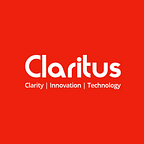Benefits of AWS IoT for Business App Development
Amazon’s approach to IoT development aims to target every market. From a one-man garage-based operation attempting to build a smarter toaster to a sprawling multinational corporation attempting to cut costs and improve efficiency in their communication network, the AWS IoT platform has the tools necessary for smart devices to not only succeed but to excel at their functions.
Easy-to-use software and simple coding empower new creators to start flexing their IoT muscles. Before AWS IoT came around, building a smart toaster would require huge amounts of development and prep-time. In order for the toaster to interact with an online grocery service and order more bread, the designer would need to create a way to place an order with the grocery service. With AWS IoT and Lambda functions, that same process can be setup in a fraction of the time. Likewise, when the smart toaster notifies the hungry bread-toaster of their completed breakfast via text message, that too would have needed its own custom implementation for SMS service. Once again, AWS IoT makes this a near-trivial design scenario.
Moving to a more scalable example, industrial IoT was long considered a massive task involving huge investments to create processing infrastructure for collected data. In order for industrial IoT to be truly useful, it requires real analysis and processing of information gathered by devices and sensors, a task that demanded large server farms with the computing power and storage to carry the massive amounts of data often used at scale. Amazon’s IoT Analytics removes the infrastructure demands entirely, giving businesses an Infrastructure-as-a-Service (IaaS) solution for IoT data processing and analysis.
The icing on the IoT-flavored cake is strong security offering to protect consumers and businesses from costly data breaches or dangerous intrusions. IoT devices are particularly vulnerable to tampering when left unsecured, and Amazon’s commitment to iron-clad device security through encryption, authentication, and auditing gives businesses peace of mind that their IoT deployments won’t become a costly security mistake.
Business use cases
AWS IoT already garners business from corporations around the world, and the emergence of use cases for IoT-powered business doesn’t seem to be slowing down anytime soon. Smart homes, industrial applications, predictive maintenance for transportation or infrastructure assets, and environmental monitoring are just a few of the sectors reaping the rewards of AWS IoT deployments.
Smart Home
One of the fastest-growing IoT markets for consumer use, smart home development is projected to nearly double in revenue over the next 5 years, from $76.6 billion in 2018 to $151.4 billion by 2024. You probably don’t have to look farther than your living room to see why. Nearly every new consumer product these days is trying to integrate IoT functionality in some way. Such products as smart fridges, smart TV, and personal assistants are finding their way into consumer’s homes across the globe.
LG had already constructed a staggering amount of infrastructure to support the collected data from tens of millions of devices, but in 2016 the company migrated to the AWS platform. Amazon provided the scalable infrastructure LG needed to run detailed analytics on the information they were amassing — a need no other cloud service provider could meet.
Industrial applications
Technology has continued to drive forward industrial manufacturing at a breakneck pace, and IoT deployments are starting to lead the charge in manufacturing efficiency. IoT offers a revolutionary new way to look at the manufacturing process as a whole, generating cost savings in places previously thought impossible.
European industrial behemoth Siemens took a deep look at the combination of IoT and cloud computing in 2017. Using IoT sensors and equipment, Siemens had planned to closely monitor the overall equipment efficiency (OEE) of their manufacturing plants. Originally the department behind this new process had planned to manually record and process each set of data by hand.
